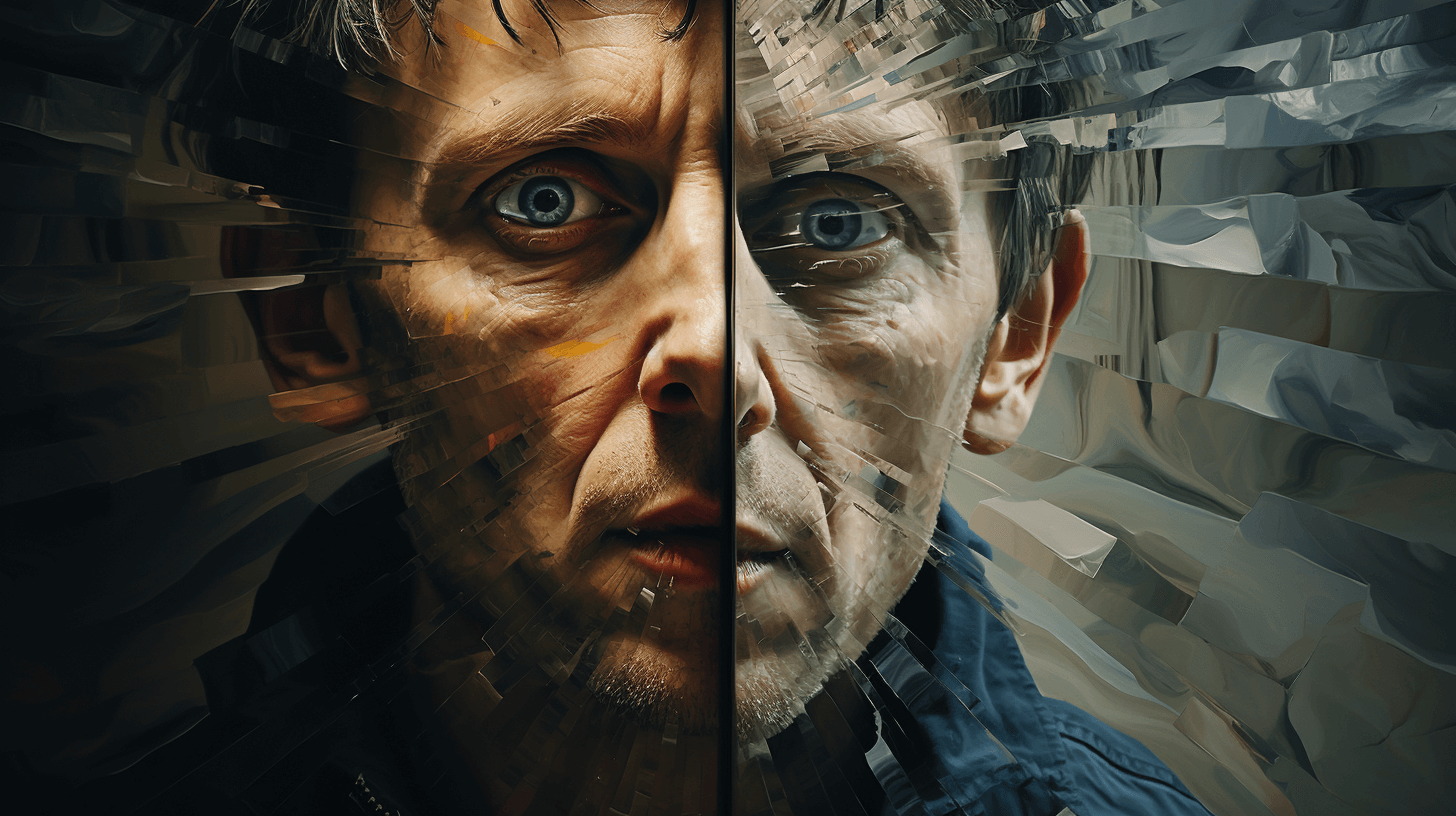Truth & Goodness
Poison on a Plate: What Drives Us to Eat Dangerously?
01 March 2026

“What is truth?” a Roman governor once asked, puzzled upon hearing the prophecy of its eventual triumph. Do we truly understand what truth is in its essence? Do universal truths, untainted by distortions or interpretations, exist? This question continues to challenge scholars and the public alike. On the other hand, the debate among human nature specialists is ongoing.
Some propose that we start life as a tabula rasa, while others contend that our behaviors are encoded genetically. Nevertheless, advancements in cognitive psychology and cognitive science (the study of mental processes) have introduced concepts such as perception, attention, and memory into scientific discourse, reshaping our understanding of human cognition, which affects how we think about the nature of truth. Are we capable of perceiving reality without the filter of our subjective experiences, or is truth, by nature, personalized? Can truth be equated to honesty?
The stimuli reaching humans can be likened to a homogeneous beam of white light. Just as a prism refracts and disperses light into a multicolored spectrum, the human brain receives, processes, and interprets incoming information. This analogy highlights the complex interplay between external reality and human cognition, emphasizing that what we perceive is often a refracted version of what truly is.
The fundamental process of distorting information—owing to our propensity for interpretation—resembles the game of ‘telephone’ played by children. With each additional participant, the initial message undergoes transformation, often changing significantly in both tone and content. This phenomenon highlights a human’s innate, sometimes subconscious, tendency to alter received information. Humans are not binary-operating machines; we are beings capable of abstract and creative thinking. Unlike passive data storage devices, our cognitive processes do not just store information; they reshape it.
This analysis implies an image of reality in which any objective truth navigates through layers of personal interpretation and distortion. Recognizing this complexity is crucial as we navigate our perceived realities, acknowledging the innate complexities of human perception and cognition in our quest for the ‘truth.’

One might argue that the human propensity for creating distortions has fueled the evolution of art throughout history. A prime example of the cultural richness derived from the human mind’s astonishing capabilities is folk art. This genre played a crucial role during the Springtime of Nations, shaping emerging nation-states. Natural geographic borders and restricted travel enforced the oral transmission of traditions and customs, enriching folklore with innumerable variations of melodies, myths, and stories, celebrated by nations aware of their unique heritage.
What implications would absolute truth-telling entail? Cinema provides a compelling illustration. In Tom Shadyac’s “Liar Liar,” a character portrayed by Jim Carrey experiences a magical phenomenon, stripping him of the ability to fabricate. Though the movie concludes on a positive note, typical of Hollywood, the character’s numerous uncomfortable scenarios provoke thought. Would complete honesty, voicing thoughts with no censorship, land us in trouble? This query, while leaning more towards honesty than objective truth, serves as a thought experiment inspecting a reality devoid of falsehood.
Does our partner genuinely wish to know their appearance does not echo a fashion model’s? Should our loved ones be aware they do not possess the physique of Michelangelo’s David? Is it prudent to tell our mother-in-law that we would prefer to camp on a radioactive field than spend another night at her house? Is our employer truly prepared for unfiltered opinions on their competencies? Contemplating these scenarios, one might conclude that deceiving others and not telling the whole truth, paradoxically, is not inherently unethical but can serve moral ends. In such contexts, it preserves our personal relationships, family connections, and professional paths. It is also our responsibility to discern if it is the proper time and place to be completely honest and reveal the whole truth.
These considerations highlight the complex role of truthfulness within social and cultural interactions. Acknowledging these nuanced dynamics encourages a more profound comprehension of societal norms and interpersonal relationships, revealing a moral landscape that is not strictly black and white.
Yet, deception can often be short-lived and have profound consequences. This notion is vividly portrayed in the American series “Big Little Lies,” which highlights the escalating dangers of accumulating seemingly harmless half-truths and lies. These untruths can become a substantial threat with time, imperiling numerous individuals. Hence, lying can indeed invoke negative repercussions. The critical questions then arise: When does this transition occur, and how can one differentiate between actions serving the greater good and those concealments that have disastrous consequences?
The crux appears to be the individual’s motivation. If someone, based on their ethical judgment, believes that honesty might harm a confidant, their deceit could be interpreted as a protective gesture for the other’s well-being—a morally positive action. However, complications emerge when our misinterpretations, even with honorable intentions, inadvertently cause harm. In such instances, the concept of objective truth becomes a valuable tool for unbiased reasoning.
In the domain of classical physics, absolutes exist: black is black, white is white, and jumping from a tree undoubtedly results in a fall to the ground. However, with the advent of quantum physics in the late 19th century, these absolutes were challenged, introducing nuances unrecognized in classical theories. Our navigations through the metaphysical world are even more complex. Absolute, indisputable truth is attainable to a human mind only within mathematical frameworks, grounded in established theories and axioms.
Conversely, there seem to be no definitive axioms in the realm of the human soul. This absence has led to the establishment of moral systems deeply entrenched in cultural norms, as human reasoning seeks a reference point to differentiate right from wrong. Proving a point in the realm of ethical thinking, a reality devoid of such a context, is much more challenging than within the philosophies based on culturally grounded moral codes. As with the complexities of good and evil, grasping the notion of objective truth requires embracing a broad perspective and maintaining an open mind.
Typically, we excel in distorting reality especially when evaluating ourselves and our actions. Beyond the unconscious level, which escapes moral or ethical scrutiny, lies our conscious personality, fraught with complex issues. Anna Freud, the daughter of the founder of psychoanalysis, detailed numerous strategies we employ to avoid confronting the truth, labeling them as “defense mechanisms.” In psychoanalytic theory, these are tools used to protect our ego, which seeks to maintain the status quo at all costs, even at the risk of remaining in an objectively pathological state. These mechanisms include denial, a total refusal of reality; intellectualization, the crafting of elaborate false theories to excuse our conduct; and projection, assigning our flaws to others while eagerly criticizing them. These strategies, among others, signify our difficulty in confronting ourselves honestly. Achieving objective truth—perceiving reality without our biases, often with a therapist’s assistance—is a therapeutic goal and remedy in psychotherapy. The biblical phrase, “The truth shall set you free,” seems apt here.
Is it possible for us to discover objective truth, or does it even exist? Can repeated attempts to be honest with ourselves lead us to the knowledge of the truth about ourselves, or will it always be limited by our perception of it? Anthropological discoveries, philosophical contributions, and psychological knowledge suggest its elusiveness to the human mind. However, “The whole is greater than the sum of its parts,” declares Gestalt psychology. Thus, we must ponder, do we genuinely require to know objective truth? It may be that the relentless human pursuit of ‘truth’ is a process—a continual journey that is not a means but an end in itself.
Read more on Holistic News

Truth & Goodness
01 March 2026


Zmień tryb na ciemny